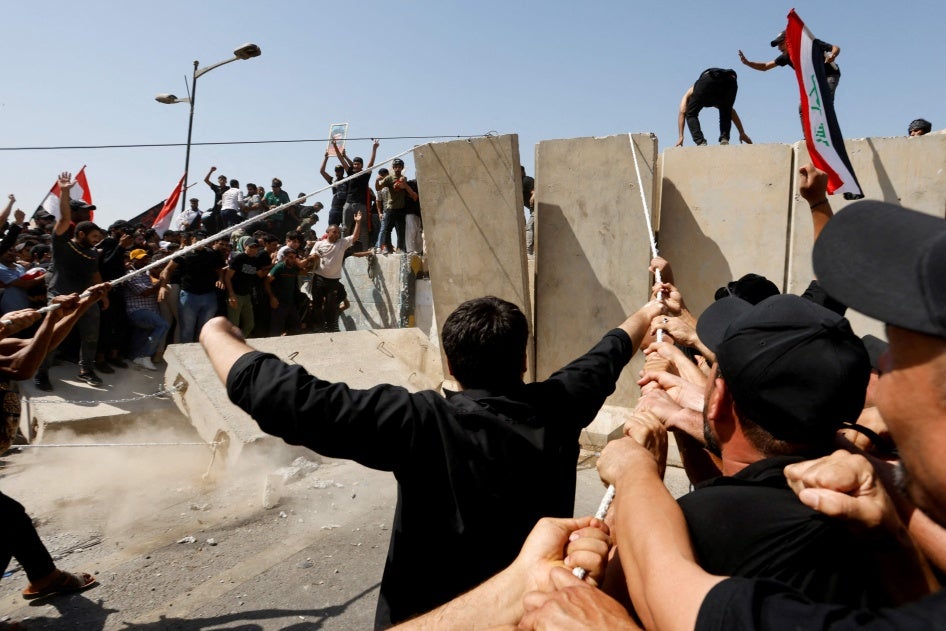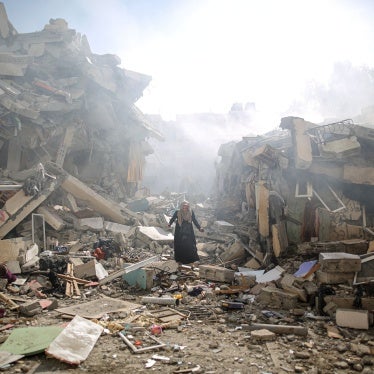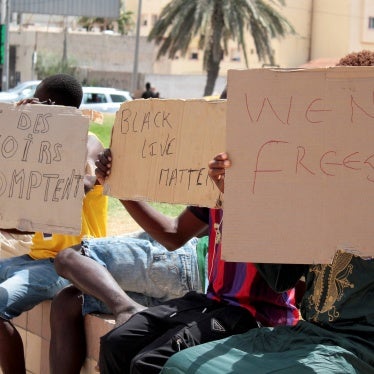(Beirut) – After decades of armed conflict, Iraq has enjoyed its most stable period since before the US-led invasion of 2003. However, the country remained fragile and deeply divided as grievances over widespread corruption, unemployment, and poor public services, which drove mass protests in 2019 remained unresolved. Impunity for violent repression of protesters and arrests of journalists covering demonstrations continued in 2023, Human Rights Watch said today in its World Report 2024.
“Iraq should capitalize on this period of calm to enact reforms that uphold freedom of expression, provide Iraqis with an adequate standard of living, and ensure accountability for rights violations in order to create conditions for further peace and prosperity in the country,” said Sarah Sanbar, Iraq researcher at Human Rights Watch. “Without addressing ongoing abuses, Iraq risks falling into yet another cycle of violence.”
In the 740-page World Report 2024, its 34th edition, Human Rights Watch reviews human rights practices in more than 100 countries. In her introductory essay, Executive Director Tirana Hassan says that 2023 was a consequential year not only for human rights suppression and wartime atrocities but also for selective government outrage and transactional diplomacy that carried profound costs for the rights of those not in on the deal. But she says there were also signs of hope, showing the possibility of a different path, and calls on governments to consistently uphold their human rights obligations.
Six years after Iraqi and US-led coalition forces retook the last territory controlled by the Islamic State (also known as ISIS), the security situation has largely stabilized. But around 1.16 million Iraqis, including 60 percent of the population of the town of Sinjar, remain internally displaced, mostly across the Kurdistan Region of Iraq (KRI). In April 2023, the Ministry of Migration and Displacement hastily closed the Jeddah 5 camp, the last official camp for internally displaced people in federal Iraq, with little advance notice, and despite concerns about camp residents’ safety if forced to return to their areas of origin.
Since January 2021, Iraqi authorities have repatriated about 10,000 Iraqis unlawfully detained as ISIS suspects and family members in northeast Syria: nearly 7,000 from al-Hol camp, mostly women and children, and about 3,000 men, held in prisons, whom Iraq said it was prosecuting. United Nations Secretary-General Antonio Guterres and US officials have lauded the returns, though some nongovernmental organizations and UN staff have questioned whether the repatriations meet UN principles for safe and voluntary returns.
Women and girls continued to struggle against discrimination embedded in the legal system. Iraq’s penal code enables impunity for certain cases of male violence against women, including provisions that allow a husband to physically punish his wife, and mitigated sentences for violent acts including murder for so-called honorable motives. Women’s rights groups continued to advocate an anti-domestic violence law, but efforts in parliament stalled by the end of 2023.
The penal code also permits corporal punishment of children. In June 2023, the Iraqi parliament introduced a draft child protection law, a vital step in safeguarding children’s rights. Over the last 20 years, rates of child marriage have steadily increased. Poverty, insecurity, and lower educational outcomes for girls have all been associated with the higher rates.
The UN ranked Iraq as the fifth most vulnerable country to global warming and climate change, and its environmental crisis has worsened steadily in scope and severity. Weak environmental protection legislation and dirty industrial practices, such as gas flaring, have contributed to rising cancer rates. A growing environmental movement seeks to address the degradation caused by conflict and resource mismanagement, prepare Iraq for the realities of climate change, and promote its transition away from a fossil-fuels based economy. Like activists across the civil society space, their efforts have been met with harassment, intimidation, and threats.
Freedom of speech and expression was increasingly under threat in 2023. Vaguely worded laws have been used to target and silence journalists, activists, and rival politicians, including in the KRI. In January 2023, the government launched a campaign to target “indecent content” online.
“Iraq has come a long way in recent years. Protecting human rights and ensuring nobody is above the law when rights have been violated are indispensable in maintaining the stability Iraq has worked hard to achieve,” Sanbar said.









